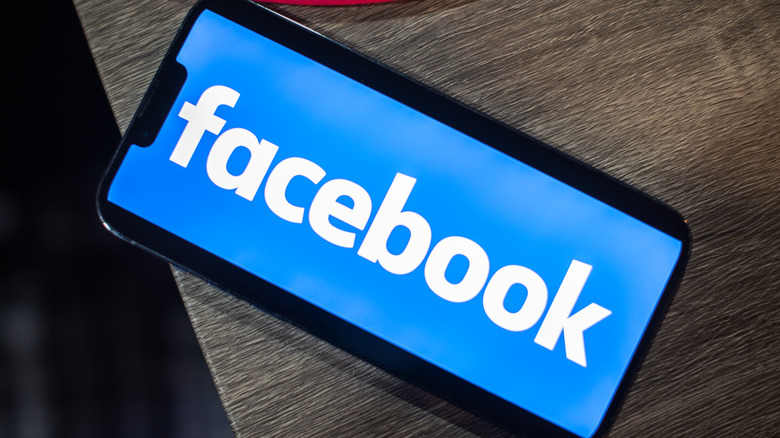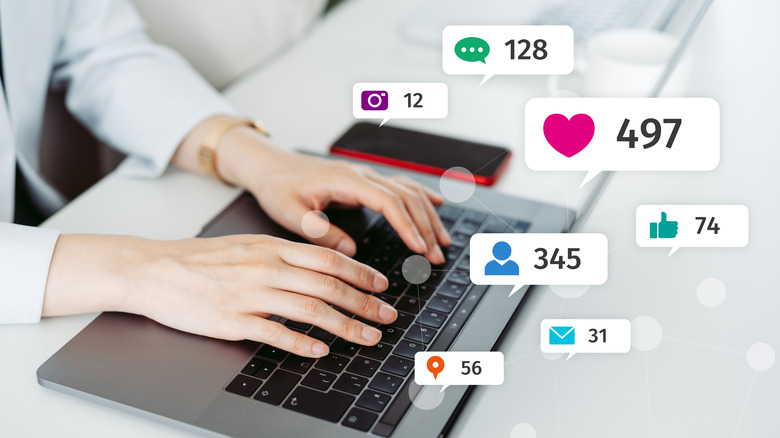5 Reasons You Should Stop Using Facebook Right Now
Facebook has as many as 2.9 billion monthly active users worldwide, and is constantly making the news for scandals and social issues related to its platform. Though it started out as a way to keep in touch with people, it's now used to keep track of everything that happens in and outside of your social circle, keep up with the news, buy products, and consume various types of media. It's become an activity that people can spend hours on every day, with the average adult in the UK investing 16 hours a week on Facebook.
But is Facebook really worth your time? Depending on what you use it for and how it affects other aspects of your life, it could be a good idea to simply quit. Let's look through a few of the compelling issues that affect some users and evaluate whether using Facebook is a net positive for you.
1. It collects too much data
Everyone knows that Facebook collects user data and that there are countless scandals around how they do it and what they use it for. It's been in the news so much in recent years that it feels too normal to even be shocking. The normalization of this data-collecting practice, however, is quite dangerous, and it's important to remember just how much information Facebook collects.
If you look at the privacy details for the Facebook app on the Apple App Store, there's a list of data types the app collects. It includes contact information, purchase history, financial information, location, contacts, photos and videos on user devices, search history, browsing history, health and fitness information, and audio data on user devices. It also includes data types labeled "sensitive information" and "other data types," showing that this already long list is not exhaustive. The dangers of corporations collecting data like this are varied. For example, when Meta sells your data, it increases the chances of your information being exposed in breaches.
While there are privacy settings you can change, and users who don't mind that their data is being mined, the fact is that you're selling important personal information that makes the Meta company a lot of money. At the very least, you should receive something positive in exchange for this data — but, as the rest of this article will argue, using Facebook often doesn't result in many benefits.
2. Its content is too negative
Another all-too-familiar topic when it comes to Facebook is the potential danger of its algorithms. These machine learning algorithms feed on your data, using who you are, what you liked, what you clicked on, what you bought, who you know, and many other factors to determine what to show you. Their goals are to find the ads you're most likely to click on so advertisers receive more money, and the posts that are most likely to keep you browsing Facebook for longer, giving you time to click even more ads.
There are already ethical problems with this business model, but the real problems begin when you start considering human nature — what is it that keeps us most engaged? Unfortunately, it's not cute animals and happy topics. As lovely as they are, it's easy to put your phone down and simply look forward to looking at more pleasant things tomorrow. What keeps your eyes on that screen are fear and anger.
Fear about the future, hate for people that seem to be working against you, frustration over politics, outrage at the evil activities apparently happening under the radar. Getting more information about these topics simply can't wait until tomorrow — you need to know now. And so Facebook gets the increased screen time and revenue it so desperately desires, while you get the exact opposite of enjoyment and entertainment. It sounds dramatic, but life is difficult already — shouldn't we focus on fun in our spare time?
3. It affects your mental health
Unfortunately, the potential consequences of Facebook's algorithms go beyond just "not having enough fun." Comparing your life with that of every other person you've ever known, arguing with people about politics and social issues, dealing with social drama and bullying, receiving negative comments, not getting enough comments, reading stressful content — if your day-to-day life is full of these kinds of interactions, it's not really surprising that it can affect your mental health.
There's no shortage of studies and research into this topic. In young people and adults alike, social media envy is affecting anxiety and depression levels. Facebook content shows you what a perfect life looks like — the extravagant lives of the rich, the fabricated lives of content creators, and the efforts of people you know trying to emulate them. Not having what you want, not looking how you want, feeling inferior to others, feeling ashamed that you haven't achieved the right level of success — these negative emotions aren't easy to turn off. They affect your ability to enjoy what you do have and your ability to go out and make more for yourself.
For some people, things can become even more serious. They require medication to help combat their depression, and if they don't or can't receive the help they need, their quality of life can severely deteriorate. In extreme cases, suicide is also possible. Of course, if you think Facebook causes you this kind of stress, you should step away from it immediately.
4. It disturbs your sleep
Another factor that can worsen mental health issues and affect all types of people is disturbed sleep. Facebook is always there, and sometimes it can be very difficult to put down. A survey from the American Academy of Sleep Medicine found that 93% of Gen Z individuals have lost sleep from staying on social media late into the night. For young people, this can be detrimental to growth and brain development. For adults, it can affect the concentration, motivation, and physical strength you need to work each day.
Leaving notifications on during the night is also problematic — as many as one in five adults say they wake up and check their phones during the night, interrupting natural sleep cycles. The phenomenon of FOMO (fear of missing out) leads people to check their Facebook when they ought to be sleeping. Even using social media after getting into bed can have adverse effects because the blue light from the screen causes alertness and delays sleep. This, of course, is a problem that applies to social media sites other than Facebook as well.
5. It wastes too much time!
No one wants to be told that the way they choose to spend their time is a waste — especially when viewing social media as a form of recreation. Everyone is free to enjoy themselves in their own way, after all. The problem, however, is all of the issues discussed above. Is Facebook really fun? Does it make you happy and have a positive impact on the rest of your life? Does it make it easier to go to work each day, or harder? If it doesn't give you the benefits a hobby ought to, and stops you from pursuing other hobbies, its worth can definitely be brought into question.
Some people think there's nothing "better" for them to do, but it's not really about what you would replace Facebook with. You don't need to choose some highly valued, productive, or healthy hobby. If that's not what you happen to find fun, those things wouldn't work as hobbies anyway. To start with, all you need to focus on is what helps you relax, feel at ease, and maybe even laugh.
If Facebook doesn't do those things, and you find that it does cause problems for you, then just delete the app and your account and do something else. Watch some Seinfeld, play a video game, or whatever else sounds fun. Of course, keeping the app and just using it less is an option too, especially since many people use Facebook groups for work or community purposes.





